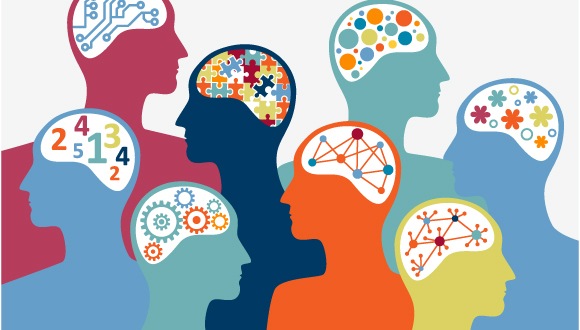5 Do's & Don'ts of Using Personality Tests for Personal Growth
Aug. 11, 2022 - Katie McCallumFrom a driver's exam to finals, taking a test and getting the results usually comes with a fair amount of anxiety or dread or both.
One seeming exception: personality tests.
It's almost impossible not to nod your head along with the results, internally screaming, "That's so me!"
But for every aha moment we've had taking any of the many different personality tests, we've probably all at some point wondered how accurate they are.
Maybe the larger concern, though, isn't about their accuracy, per se, but rather how accurately we laypeople use and interpret the test results.
"Personality tests and assessments can help you understand yourself and how you show up at work or with your friends and family," says Alicia Friday, a senior organizational development consultant at Houston Methodist. "But it's important to realize that they're not all-encompassing descriptors of who we are as people."
When it comes to using a personality test to better yourself as a person, Friday has some tips, including these five do's and don'ts:
DO use personality tests for help with self-reflection
Whether it's while answering the questions or reading your results, personality tests inherently promote self-reflection — a practice that's proven to help make us more resilient to life's stresses.
"A lot of times we're moving so fast and working so hard that we don't take time to reflect on our journey," says Friday.
Depending on the test, you might learn about:
- Your strengths and weaknesses
- Your needs
- The stress behaviors you fall into when your needs aren't met
This could lead not just to a new appreciation of your skills and tendencies, but also a greater overall understanding of yourself.
"There may be things you already knew about yourself but hadn't given serious thought to previously, but there may also be things you hadn't even recognized about yourself," says Friday. "This self-reflection component to personality tests is very valuable."
DON'T use personality test results to label people
As humans, we don't generally like unknowns.
And perhaps that's why many of us like personality tests — because they seem to provide concrete answers about ourselves or others.
But Friday notes that we start to go off track when we rely on personality tests to define people.
"We're misusing personality tests if we're using them to label people," says Friday. "These tests offer insights into peoples' potential tendencies and motivations, but they do not tell you who exactly someone is or predict how they will behave or act in the future."
For instance, just because a test classifies someone as "The Debater" doesn't mean you can assume they're a contrarian who turns every conversation into an argument.
"There's nuance to everything, personality included," says Friday. "Even people within the same personality type or group are going to show up a little differently."
DO question your results
Your test results do not define who you are, and we mean it!
"I always tell people that you're allowed to argue with anything that shows up in your results," says Friday. "You know yourself better than anybody, and certainly better than any kind of assessment out there."
Friday's advice is to take what's useful out of your results and leave anything unhelpful behind.
"Personality tests help surface what we do really well, and this positive reinforcement can be very powerful," says Friday.
But some tests pinpoint weaknesses in addition to strengths. Friday says that getting better at what you're already good at is likely more productive than trying to fix something that's not necessarily in your wheelhouse.
"Taking one of these tests should lift you up, not bring you down," adds Friday. "If your results are painted in a more negative manner than a positive one, perhaps it's not the best use of that test."
DON'T take a test when you're in a poor mood
While we may be tempted to use personality tests as a way to find answers during times of personal strife or uncertainty, Friday warns against taking them on days when you're in an extremely emotional state or feeling at your worst.
"Try to take it on a day that feels pretty much like normal for you," Friday recommends. "If you're in a different headspace than usual, the results aren't likely to be as helpful."
DO use them as a way to find a common language
Another benefit of personality tests, according to Friday, is that the terminology can provide us with a shared vocabulary to use in our relationships at home and at work.
"When we wrap a common language around something, we can start to have more effective conversations and support one another better," says Friday. "It's also a great way to identify what's unique about ourselves and others."
This can be particularly effective when it comes to team building.
"Knowing what we're each good at and how we prefer to tackle problems or receive feedback can improve our cooperative partnerships," Friday explains. "And it all starts with having a common language to use in our dialogue with others about our strengths and core needs."


